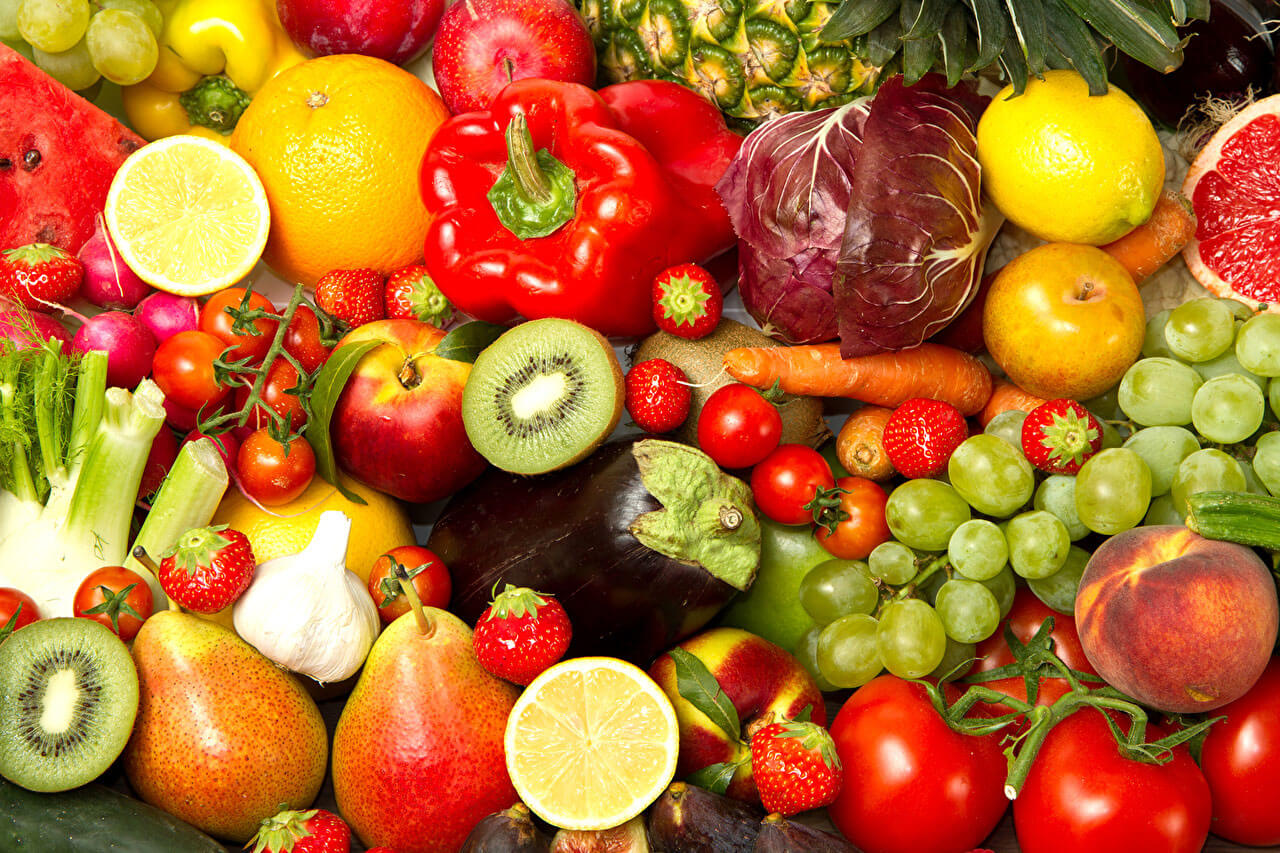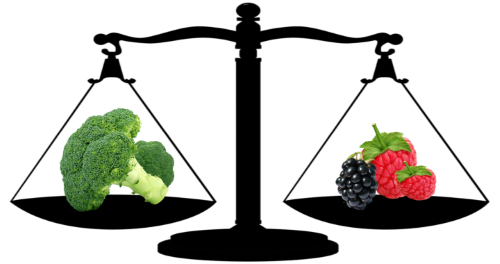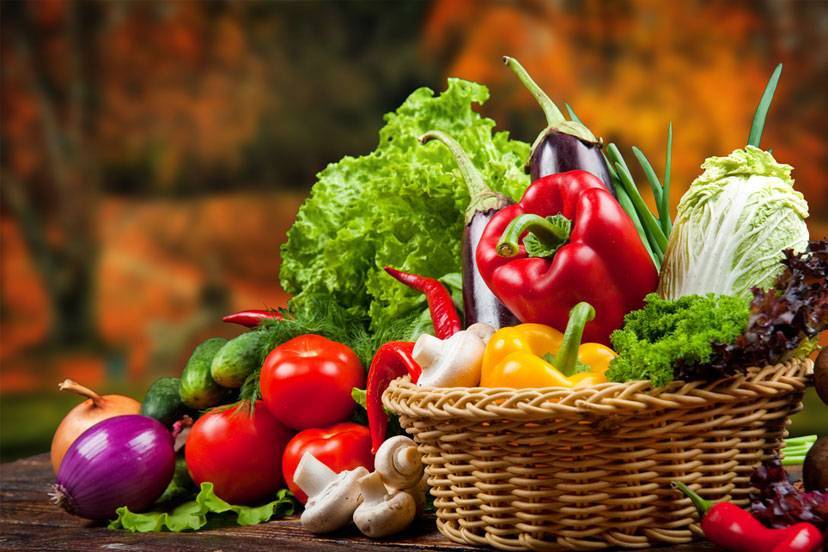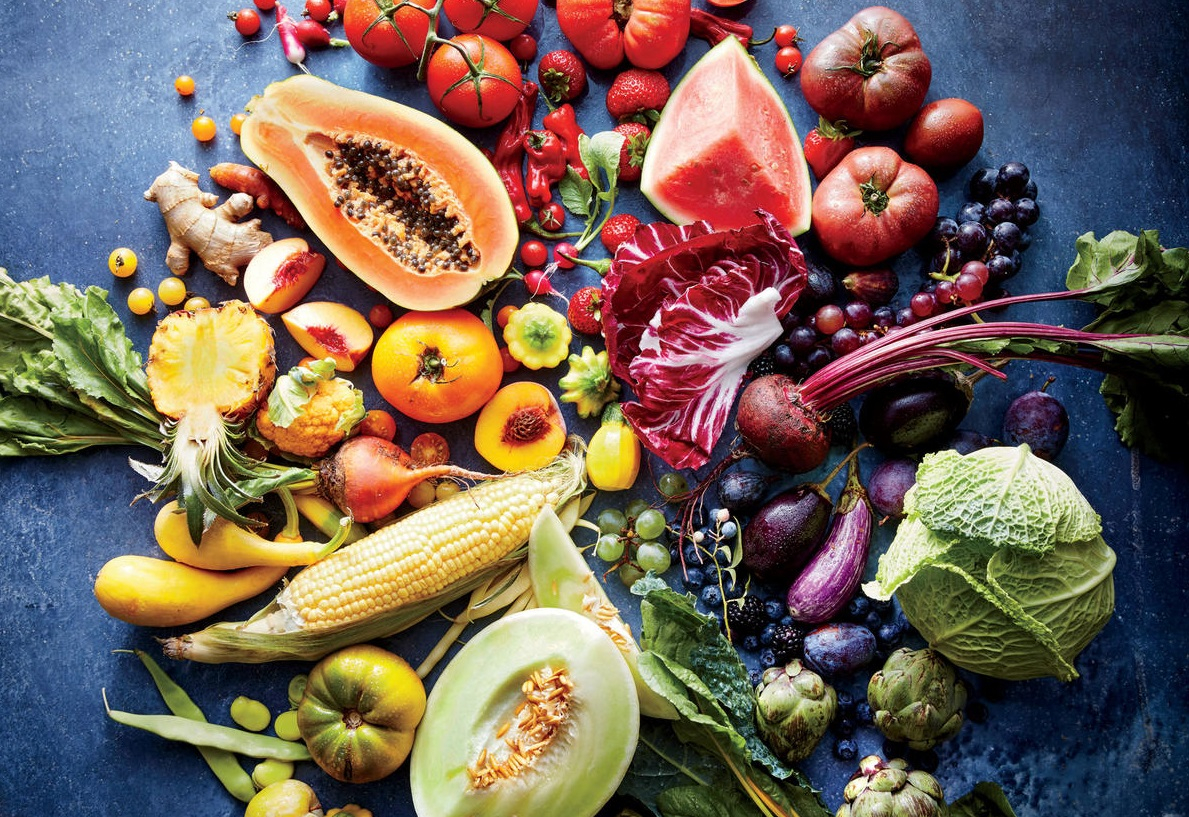It is healthy and therefore important to eat a lot of fruits and vegetables. Hardly anyone will deny that. But how much fruit and vegetables you should really eat in order to stay healthy and fit for a long time is a question to which it is not easy to get a simple answer. For this reason I want to face her in this article.
Regardless of whether you lose weight quickly and define your muscles , build muscle mass or just want to get and stay as healthy and fit as possible, it is It is always important and sensible to eat enough fruit and vegetables.
The five servings a day often recommended in this context are certainly not a bad start. Especially when you consider that, according to current studies, even this amount is not reached by 90% of the western population. In addition, these recommendations are neither precise nor sufficient in terms of quantity anyway.
For this reason, in this article I would like to provide you with clear, comprehensible and, above all, implementable guidelines based on current knowledge, research and my own experience. My focus is on athletic, active people, but the recommendations and backgrounds should ultimately be a good orientation for everyone. Even if you still want to get sporty , you’ve come to the right place.

Why fruit and vegetables at all
Many people know that they should eat fruits and vegetables regularly. But often they have never really learned why that is. They know that they contain important vitamins and other ingredients, but not how important these really are for our organism. This is often only revealed to them when they are struggling with the consequences of (severe) deficiency symptoms.
Don’t worry, I don’t want to force you to study biochemistry here, I just want to make you a little more aware of the importance of fruits and vegetables in your diet. The fact is that we humans could not live without externally supplied vitamins, minerals and trace elements. These micronutrients are necessary for all possible processes in our body. This goes from the structure of cells to the production of hormones and enzymes to the course of metabolic processes and the function of your muscles to the activation of your immune system.
I could now go into which elements these are exactly and which of them are the most important. Ultimately, however, this is only due to the most common deficiency symptoms. However, you usually have no problem with such deficiency symptoms if you just eat enough vegetables and fruit.
Another positive effect is that fruits and vegetables usually contain a lot of water. Since many people drink too little , the body gets some extra fluid. You can also get the filling fiber, which is so important and filling for your digestion, from vegetables and fruit.
Both in combination mean that consuming a lot of fruits and vegetables is extremely useful, especially in a diet. Here you tend to struggle with nutrient deficiency and hunger due to the reduced calorie intake.
Fruit or vegetables, which is actually more important?

I am asked this question a lot about nutrition. The background is probably that people want to hear that they can somehow get around the (green) vegetables that they don’t like. But in the end, I think the combination of both is important and useful. Different types of fruit and vegetables each have special nutrient combinations.
In theory, an intelligent combination of vegetables makes it possible that you don’t have to eat fruit. In case of doubt, if you had to decide, you could do without fruit rather than vegetables. However, I wouldn’t recommend that. That requires pretty precise planning. With a varied mixture, however, you make it particularly easy for yourself to get all the nutrients you need. And let’s be honest: who wants to give up fruit voluntarily ?!
There are some types of fruit and vegetables that have a particularly large amount of valuable ingredients. These are then often referred to as superfoods. As a rule, exotic and overpriced foods are called this in marketing. However, there are also real superfoods that grow in our regions and are available in every supermarket. Blackberries, raspberries, broccoli, cabbage or beetroot (which, by the way, I really don’t like) are a few I would like to mention here. They also appear in our everyday superfoods list .
How many fruits and vegetables you should eat a day
But let’s get back to the original question about the correct amount. Due to the very different ingredients, you will already know that the actual need also depends heavily on the types of fruit and vegetables consumed. However, since I want to make it as easy as possible for you and you shouldn’t worry every day about how much of which fruit and how much of which vegetables you should eat, I just want to recommend some of the aforementioned “everyday superfoods” in yours on a regular basis Incorporate nutrition. In addition, I will now approach a general recommendation based on current studies and my own experience.
5 small servings a day are not enough
You have probably heard of Campaign 5 a day (Wikipedia article on it). This WHO campaign aims to educate people around the world with the support of regional health organizations and to encourage them to consume a minimum consumption of 400 grams of fruit and vegetables determined by them. This should mean that (severe) deficiency symptoms usually do not occur. In addition, a significantly reduced risk of the occurrence of certain types of cancer was found above this level.
The German Nutrition Society has been recommending a higher value of 650 grams for a few years. This is much more useful. For many people, this would already lead to significantly improved health, a stronger immune system and a generally better attitude towards life. However, it is still a very general and in many cases too low recommendation.
How much fruit and vegetables really make sense
But what amount of vegetables and fruits is really useful? What is the optimum amount when it comes to supplying your body with the micronutrients it needs for so many things in the best possible way?
Not only do you not want any blatant deficiency symptoms, you also do not want any light ones that you may not even know are limiting you. You also want to create the best possible conditions so that you are mentally and physically efficient in the long term. Ultimately, however, you want most of all that you are doing as well as possible and that you stay healthy for a long time
With the aim of being able to give a recommendation that is as meaningful as possible and nevertheless generally applicable, numerous studies have now been carried out. I’ll list some of these at the end of the article. Based on the (more recent) results I know, I would like to make the following recommendation at this point:
- 10 grams of fruit and vegetables per day and kilo of body weight is a good guideline.
- About two thirds should be vegetables and one third fruit.
- More is never wrong and you don’t have to be too precise with the distribution.
If you take this to heart, then you are definitely on the right path and you will not have to resort to food supplements unnecessarily. Although I still recommend some sensible supplements in order to create an optimal environment for people who are active in sports.
How often you should eat fruit and vegetables a day
I do not find the recommendation with 5 servings distributed over the day so wrong that it can make sense to supply the body in smaller doses over a longer period of time. The frequently cited argument is that some substances are only absorbed to a limited extent and can only be stored for a limited period of time.
In fact, this storage period is long enough even for one meal a day. In addition, your body is a much more effective processor than you think. It would also be enough to split your vegetables and fruits over one or two meals a day. From my point of view, there are more practical reasons for distributing it over several meals.
It can be quite exhausting when you have to eat almost a whole kilo of vegetables and fruit at one time to fill up your daily requirements because you haven’t eaten all day. A piece of fruit or some vegetables, such as carrots or peppers, are also wonderful as a snack.

Which fruits and vegetables are the best if you want to lose weight
Ultimately, from the point of view of micronutrients, when choosing fruits and vegetables it doesn’t make much difference whether you want to gain weight or lose weight. However, it can certainly play a role in a diet because some fruit varieties contain some carbohydrates and thus undesirable calories.
My motto here is that nobody should not eat fruit because they are on a diet. However, you can of course pay attention to which fruit is, as it were, low carb fruit particularly suitable for diets and which is not. However, I am reluctant to diet with high-calorie fruits such as bananas, while I prefer to fill my stomach with berries.
I know meeting your macronutrient needs is hard enough. It is not at all easy to always consume enough omega 3 fatty acids and enough protein to avoid protein deficiency and muscle maintenance in the diet to maximize.
Now you should also pay attention to the right fruit? But don’t worry, just grab the right types of fruit and don’t worry too much about the few calories you eat (which are really not many). The fact that you then supply your body with the necessary micronutrients all the better in the diet makes up for that!
Where I buy my fruit and vegetables
If someone asks me where I would like to buy my fruit and vegetables, I would probably say “at the weekly market”. Here I get good quality, seasonally and regionally, and I usually have direct contact with the producer. Especially with a local farmer on site, you can take a look at the conditions on site and get a direct overview. This creates trust and a clear conscience when consuming.
However, I have to honestly admit that I mostly buy my fruit and vegetables in the supermarket. With a full-line supplier there is a large selection, I always get what I want and the opening times are simply much better. That gives me a lot more flexibility.
I also have to admit that I buy a lot of fruit and vegetables already frozen ready to eat (especially frozen berries, broccoli and imperial vegetables). It’s just convenient in terms of storage and use. In fact, I also find that the frozen vegetables often taste fresher and there are numerous studies that show that their ingredients are often even better than the fresh fruits and vegetables. This is because it is frozen right after harvest.
Have fruit and vegetables delivered
In the meantime I have also switched to having my purchases delivered to me on a regular basis. It’s convenient, I save myself time (after all, that’s about two hours a week for me), the annoying wearing and it’s not significantly more expensive either. The Rewe delivery service carries my purchases up to me on the fourth floor and I can also set the delivery times so that I can be safely at home.
When the service was first introduced, I was very skeptical, especially when it came to fruit and vegetables. After all, you can pick out the best things in the supermarket. So far, however, I’ve always got good things. This is certainly also due to the fact that the things usually come directly from the warehouse and don’t even end up in the grab bar and are touched by everyone. With the frozen things it doesn’t make much difference anyway. Here I still have the advantage that the goods are delivered chilled.
Greens – My insurance against too little fruit and vegetables
Sometimes I have stressful days, I am on the road a lot and for a long time and sometimes I just can’t or only with difficulty to eat enough fruit and vegetables. Of course, I always try to make the best of it and also to eat a lot of fruit and vegetable products when I’m out and about, but I often don’t get the optimal supply.
Because of this, I have some kind of insurance against too little plant-based foods. Every morning I have a greens shake for this. In addition to concentrated fruit and vegetable powders, this also contains various other concentrated superfoods. This includes algae and fungi, which are said to be very good for the immune system and do not otherwise appear in my normal diet.
Every morning I take such a greens shake along with my Omega 3 capsules * and my Vitamin D supplement * . My current favorite product in this context is Green Mother from Alpha Foods * . In terms of micronutrient content, a typical serving is around 200-300 grams of fruit and vegetables. This gives me a little buffer at the start of the day.

Your conclusion on the subject of fruit and vegetables
Eating enough fruits and vegetables is important, as you probably knew before reading this article. I hope I was able to help you to improve your understanding of why exactly this is so and how often, how much and which vegetables and fruits you should eat best.
Try to stick to the amount of 10 grams per kilo of body weight per day and consume it throughout the day. Then you need all the less food supplements and supplements to create optimal conditions for the long-term fit and healthy body that you want.
Green vegetables and berries are particularly valuable. If you stick to the crowd and have a little variety, then don’t limit yourself. If you like things better than others, then eat them a little more. It is important that you manage to get the crowd. It’s really hard when you force yourself to eat 250 grams of spinach every day when you actually hate it.
It is of course particularly important to go healthy shopping right away. You can only eat enough of them if you have enough fresh fruit and vegetables in the house. If you can and want to buy this on the market, that’s great. From a purely nutritional point of view, however, absolutely nothing speaks against buying frozen fruit and vegetables in the supermarket and storing them in the freezer.
